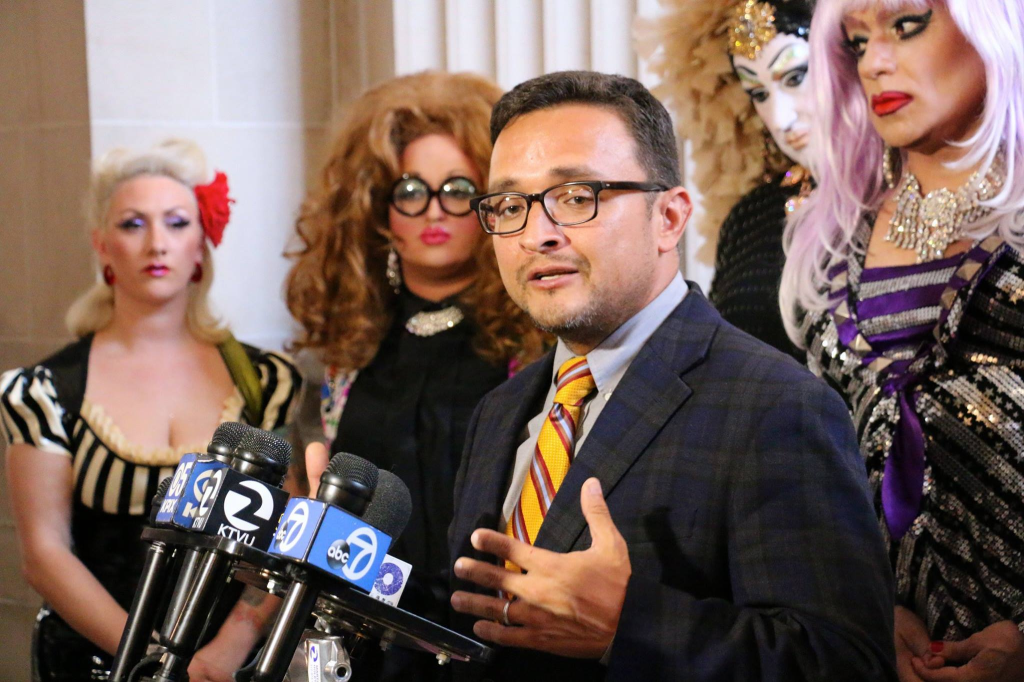
SEPTEMBER 18, 2014 — “I don’t think,” Sup. David Campos told me, “that the Facebook campus has ever seen quite this type of visit.”
Indeed: The Peninsula campus of the social media site isn’t used to a crew of drag queens marching in and demanding better treatment. In fact, like most tech companies, Facebook isn’t used to having anyone hold it accountable for anything.
And yet, after sfist and 48hills broke the story last week that Facebook was cracking down on drag queens, the community jumped into action. At a Harvey Milk LGBT Club meeting Tuesday night, a packed room listened as drag performers, trans people and others spoke about how the policy of demanding “legal” names was both discriminatory and dangerous.
Plenty of people have good reason not to use their legal names on Facebook. Teachers who are drag performers at night (particularly in some parts of the country) might not want to advertise that on a social media forum. Victims of domestic violence might not want to be that visible.
There are members of the trans community who haven’t been able to legally change their names to reflect their current identification.
And then, of course, there are performers who are known by their drag names everywhere. I’d been friends with AnnaConda for a few years before I ever learned her “legal” name. Heklina is Heklina; Sister Roma is Sister Roma.
And one person speaking at the Milk Club made a good point: Thanks to all of us who use Facebook, the outlet has become something of a public utility. There aren’t a lot of competitive options. So the company that runs it needs to address community concerns.
Which didn’t exactly happen.
Campos and a group of activists showed up and got a 90-minute meeting, mostly with the Community Relations Department. There were a few LGBT Facebook employees present, who were supportive. But the only possible decision-maker was there by conference call and left before the meeting was over.
“It was clear that the people who had the final say were not in the room long enough,” Campos told me.
Facebook staff did admit that there are enforcement issues – that is, lots of people use names other than those on their birth certificates. And they admitted, Campos said, that there might be a degree of cyber bullying here: Someone going after drag queens may have reported them to Facebook, setting off the crackdown.
But the Facebook crew wouldn’t admit that the policy is a problem. The drag queen accounts that have been disabled will be reactivated – but only for two weeks.
This isn’t even close to being over. There’s an organized, active constituency that has a long history of fighting back. Facebook may not be used to this sort of visit, but I suspect the drag queens will be back.





